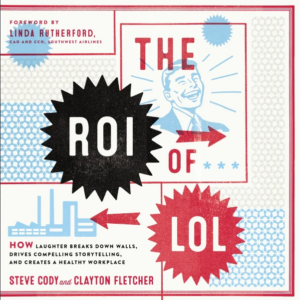Meaning is the new money for many
Purpose counts.

Mary Olson-Menzel is the founder and CEO of MVP Executive Development and co-founder of Spark Insight Coaching.
Why do we do what we do? What is your reason for being? Does your work bring you contentment and fulfillment? These are questions I ask my clients on a regular basis.
People are searching for more meaning in their work than ever before. Employees across all age groups want to feel like they are making a difference in the world and in the work that they do. I believe this trend represents a meaningful shift in the way that people look at their work and one that employers must start to pay attention to at every level.
Meaning > Money
The Harvard Business Review published an article recently called “9 Out of 10 People Are Willing to Earn Less Money to Do More-Meaningful Work” by Shawn Achor, Andrew Reece, Gabriella Rosen Kellerman and Alexi Robichaux.
This new research spotlights the fact that the majority of workforce employees are willing to trade a percentage of their lifetime earnings for a greater purpose in their 9-to-5. HBR reports that on average, American workers said they’d be willing to forego 23% of their entire future lifetime earnings in order to have a job that was always meaningful. To put this figure in perspective, consider that Americans spend about 21% of their incomes on housing.
Given that people are willing to spend more on meaningful work than on putting a roof over their heads, the 21st-century list of essentials might be due for an update: “food, clothing, shelter — and meaningful work.” These findings resonated with me and my team because we hear this yearning for doing work that means more increasingly in our coaching conversations.
What this shift means for employers
In the past three years, we have undergone a work/life reset that has impacted personal performance as well as the expectations people have for companies. Many companies could benefit from asking their people questions in order to uncover a deeper understanding of what truly motivates them. These include: What do you want from your work, now and into the future? How can the organization help you get there?
Understanding these deeper motivations will help employers craft cultures, policies, benefits – and total compensation packagesthat are better attuned to this new reality. Why is this important? Because the results of doing so have been shown to positively impact workplace productivity, job satisfaction and retention. Are you, as leaders, doing all that you can to understand and listen to your employees? Here are some steps to help keep your finger on the pulse of what is happening inside your company.
- Listen to your employees at every level, especially the ones in the trenches. Because they are seeing, hearing and truly experiencing what’s going on, making time to receive their perspective is critical to understanding what is happening inside a company.
- Motivate employees in a way that resonates with them, and keep in mind that different cohorts are motivated differently. By meeting your people where they are, you can more effectively inspire them to be successful in their roles.
- Create a vision for the future of the organization. Lead from a place of humanity and inspiration to co-create a plan that works on multiple levels, simultaneously speaking to your employees, investors and clients.
- Spread this message! Do this frequently, across all corporate communications levers, since a message needs to be heard more than five times, on average, to cut through the noise and sink in.
Having a pulse on the mood and spirit of the organization is more important than ever, and the best partner for leadership is the communications department. Comms will ensure that messaging comes through loud and clear in your employer branding, and across all owned channels. When a company’s purpose and vision come through clearly and are modeled consistently by its actions, you can not only attract the best and the brightest but also retain them. We must keep in mind that it’s our people that are our most valuable asset and the ones that keep the organization humming into the future.






